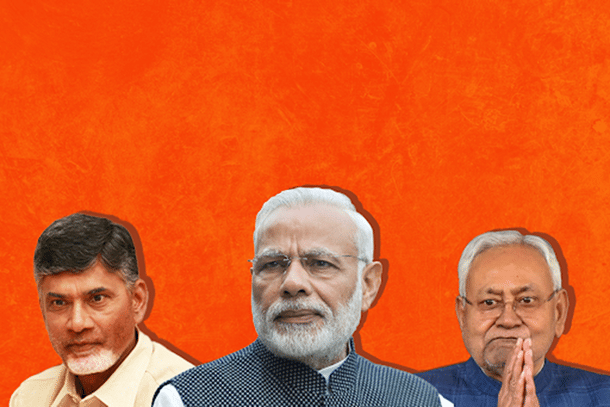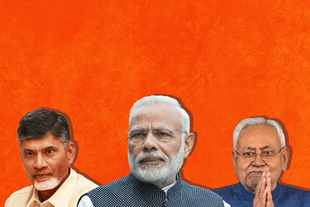Commentary
BJP’s Coalition Conundrum: Can Naidu And Nitish Secure Special Category Status For Andhra And Bihar
Amit Mishra
Jun 06, 2024, 03:48 PM | Updated 04:28 PM IST
Save & read from anywhere!
Bookmark stories for easy access on any device or the Swarajya app.


With the Bharatiya Janata Party (BJP) falling short of an absolute majority in the Lok Sabha, allies like Telugu Desam Party (TDP) and Janata Dal (United) or JD(U) are back in the reckoning.
Both the parties are eyeing plum ministerial posts and assurances, the most important of which will be the status of a Special Category State (SCS) for Andhra Pradesh and Bihar.
Swarajya explains the political compulsion behind granting SCS category to these states.
While the Constitution does not explicitly provide for a special category status designation, the fifth Finance Commission (FC) introduced the SCS mechanism in 1969 to address geographical and socio-economic disadvantages.
Special category status was granted based on an integrated consideration of five criteria, namely, hilly and difficult terrain, low population density and/or sizeable share of tribal population, strategic location along international borders, economic and infrastructural backwardness and non-viable nature of state finances.
Initially, SCS was granted to 11 states, including the entire North East and the border hill states of Jammu and Kashmir, Himachal Pradesh and Uttarakhand, before being discontinued on the recommendation of the 14th FC.
Since then, Andhra Pradesh, Bihar and Odisha have sought SCS status. Andhra Pradesh argues for it due to revenue losses after Hyderabad became part of Telangana, Odisha cites vulnerability to natural disasters and a large tribal population (nearly 22 per cent), and Bihar highlights poverty and backwardness exacerbated by natural causes.
However, the central government has consistently denied these demands, citing the 14th FC report's recommendation that no state be accorded SCS.
Coming to the present, with BJP lacking a majority, it has limited options in negotiations with TDP chief N Chandrababu Naidu and JD(U) chief Nitish Kumar regarding SCS status.
Naidu has been particularly vocal about SCS, and with senior Congress leader Jairam Ramesh promising that the INDI Alliance would accept this demand if it gains power, BJP's bargaining power is diminished.
While SCS for Bihar isn't a major issue now, it could become one if Tejaswi Yadav makes it a key point in the 2025 assembly elections. With Bihar heading to polls next year, JD(U)'s bargaining power is strong.
Add to this, giving SCS to Naidu to the exclusion of other states, notably Bihar and Odisha, will be challenging for the BJP. With Nitish and Naidu now in a strong position to assert their demands, the BJP's options are limited.
One option is to grant SCS to both states, though this is fraught with fiscal and political challenges.
Another option could be a time-bound SCS status similar to what the UPA promised, perhaps for five years. However, this comes with its own set of challenges, especially its potential impact on electoral outcomes given that the Congress hasn't won a single seat in Andhra Pradesh since its bifurcation in 2014.
The most realistic option for the BJP is to negotiate with Nitish and Naidu and reach a compromise with favourable terms.
This could include support for building Amravati, the capital of Andhra Pradesh, and other financial incentives for Andhra. For Bihar, this could involve a special economic package, central university status for Patna University, a permanent solution for silt accumulation on the Ganga riverbed, and solutions to the perennial floods in the Koshi river, among other measures.
The outcome of this policy issue ultimately rests on how the BJP leadership decides the role of these two parties in the alliance.





